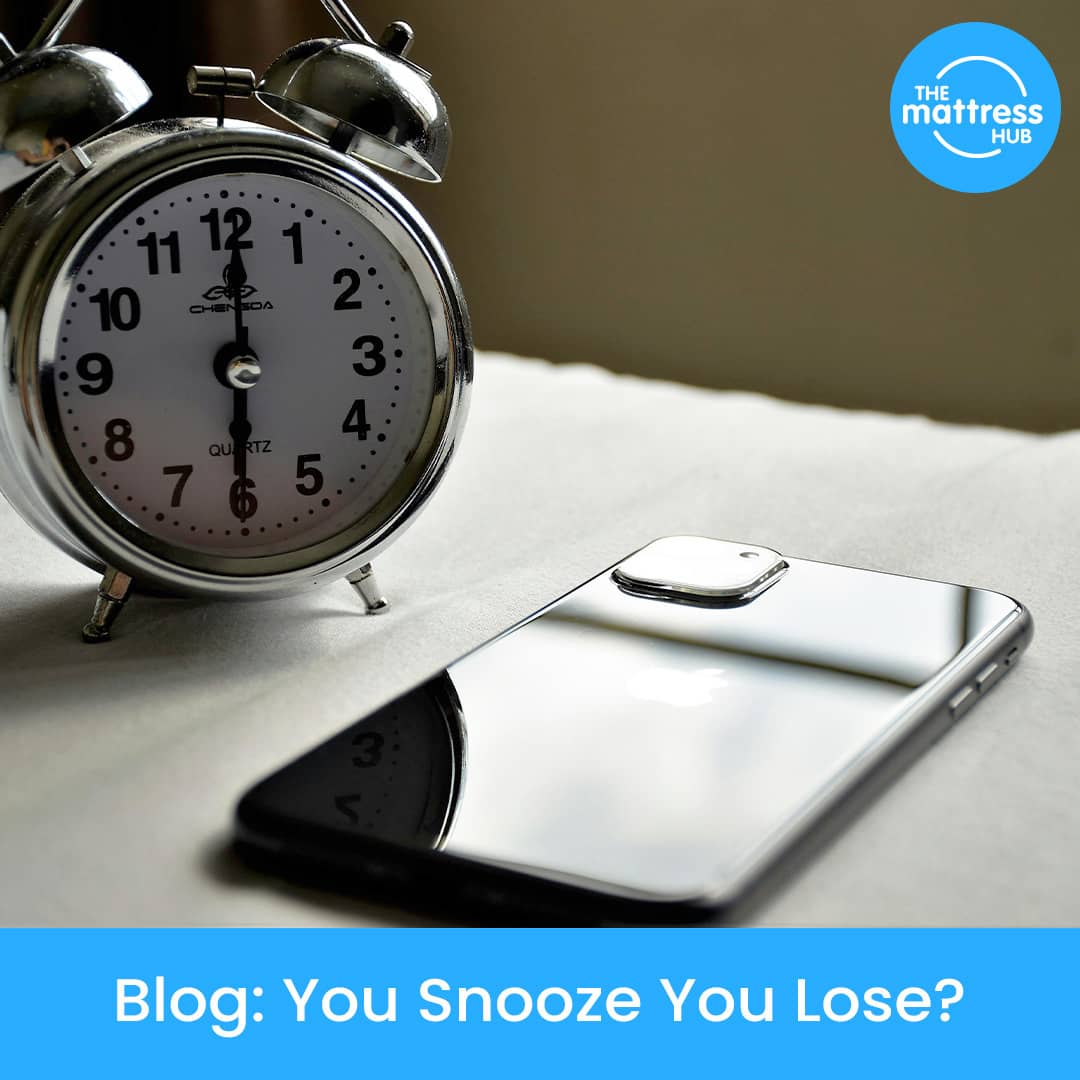You Snooze You Lose?

Raise your hand if you’ve hit your snooze button one too many times. We’ve all been there. Wanting just 5 more minutes of cozy sleep curled up under the covers. But, can hitting the snooze button hurt your sleep? The snooze button gives promise of a smooth transition from the dream world to the real world. While hitting snooze allows us a few extra glorious minutes of sleep, some people are for and against snoozing for a few extra minutes. We’re going to look at the pros and cons of snoozing and how you can get up without snoozing.
First, it’s important that you understand the stages of sleep. As our bodies move through the different stages of sleep our brain rests from the day and the body will start to rejuvenate as it enters the restorative sleep stage. Ensuring you get enough restorative sleep is vital to your overall physical and mental well-being. You need to have enough sleep in each stage so you can wake up feeling well-rested and ready to conquer the day. With that, let’s look at the pros and cons of drifting off for a few extra minutes.
Snoozing does shorten your sleep, but there are benefits of not jumping up the first time your alarm goes off.
- Fight Sleep Inertia – Sleep inertia is the groggy feeling we have in the morning. Some say that when you gradually wake up it can ease your body and mind into being awake and help you feel more alert and ready to go in the morning.
- Reduced Stress – Having that buffer between your sleep and starting the day can lower stress levels and give your brain a breather before starting the day’s tasks.
- Light Sleep Can Aid in Cognition – When snoozing your brain doesn’t revert to a deep sleep stage and can have an increase in cognitive function.
On the opposite side of the snooze pillow, there are negative effects as well.
- Disruption in the Circadian Rhythm – This is our internal clock, and how your body knows when it’s time to go to sleep and wake up. When you snooze, especially more than 1 or 2 times, it can throw off your internal clock and you can feel tired earlier in the day.
- Interrupting REM Sleep – The later stages of sleep are the most important, so when the alarm goes off before you actually need to wake up it can interfere with your REM sleep, and snoozing for a few short minutes or continuously waking up doesn’t allow you to renter the restorative stage of sleep.
- Increased Sleep Inertia – While some say snoozing can decrease sleep inertia, others say the disruptive sleep patterns when snoozing can lead to a longer period of grogginess.
So, is snoozing good or bad for you? Although it has pros and cons, it’s a personal choice. Understanding the science behind sleep and your own sleep needs can help you find a balance between savoring the extra few minutes curled up in your sheets, and jumping up to start the day. If you find that snoozing doesn’t help you feel well-rested, you might want to look at other ways to improve your sleep.
- Go to bed and wake up at the same time every day
- Have a good night time routine
- Have a good morning routine
- Make sure you’re comfortable in your bedroom
One way to ensure you are getting good quality sleep is to make sure you have the right mattress. Having a mattress that doesn’t support you or your sleep can cause you to wake up feeling tired and sore. Visit your local Mattress Hub today and get the sleep you deserve.